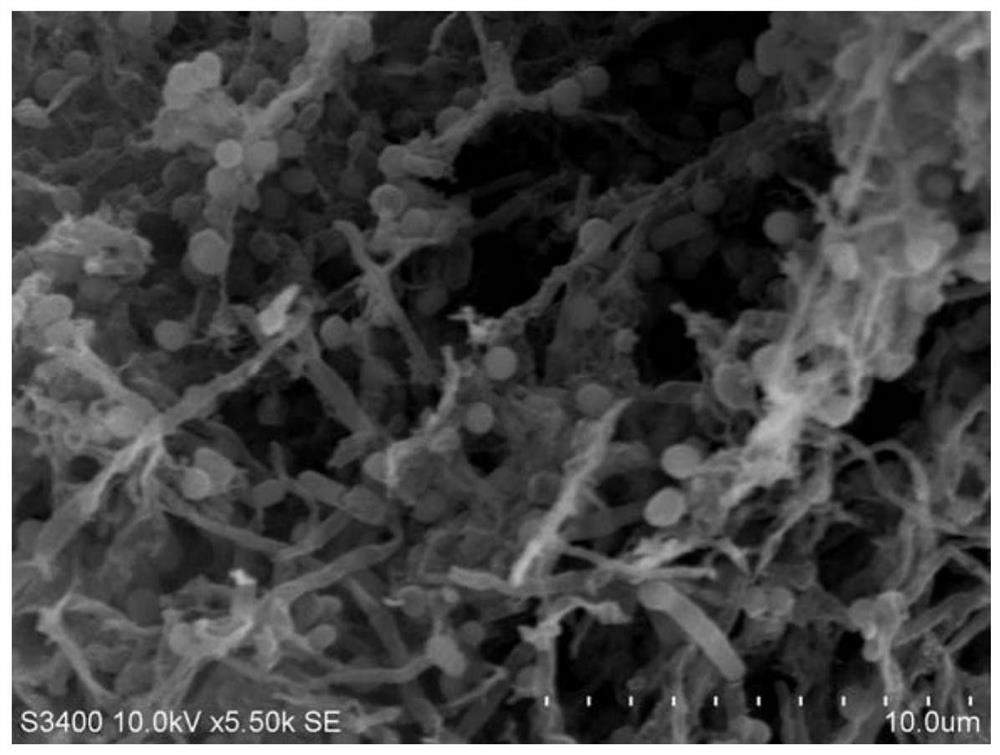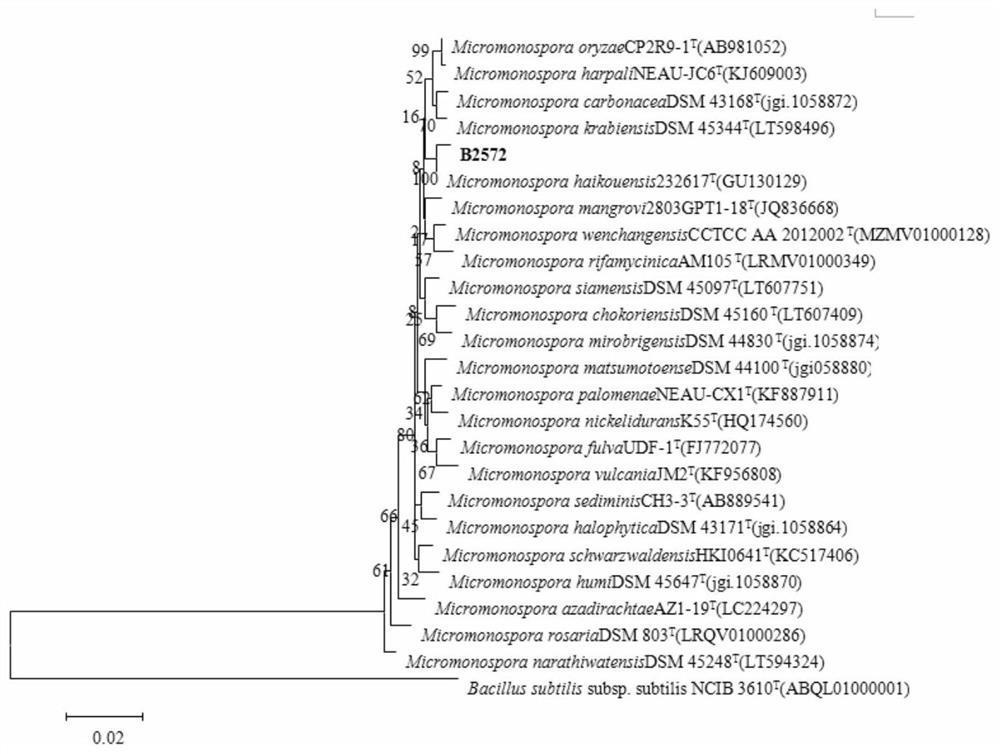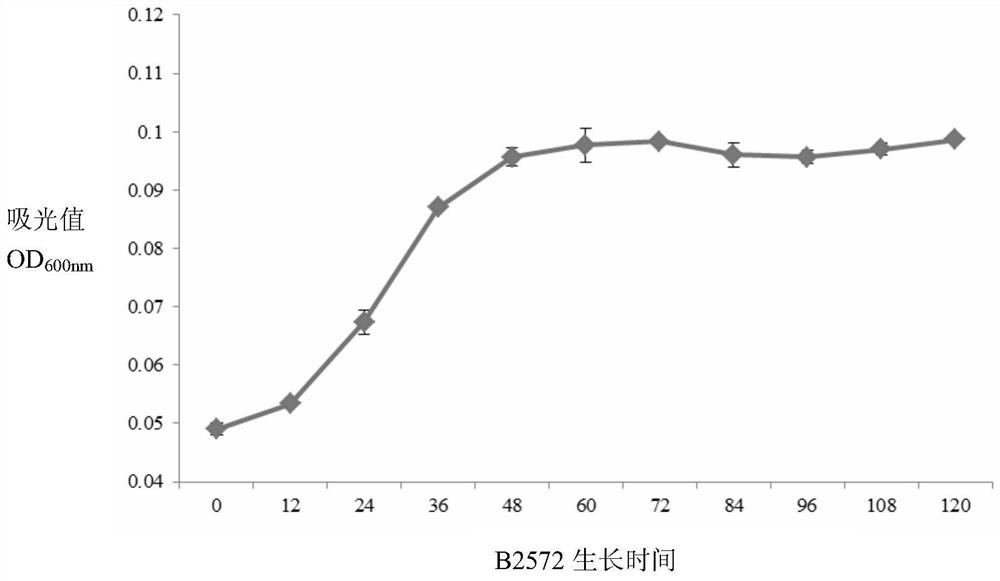Micromonospora haikouensis having algae dissolving capacity and application of micromonospora haikouensis to karenia mikimotoi
A technique for dissolving algae and new strains, applied in the field of environmental microorganisms
- Summary
- Abstract
- Description
- Claims
- Application Information
AI Technical Summary
Problems solved by technology
Method used
Image
Examples
Embodiment
[0030] 1. Screening of algae-lytic bacteria
[0031] Collect the soil attached to the surface of the roots of Sangria apetalus (within 5mm from the roots), weigh 2.0g of soil samples and put them in a conical flask with 20ml of sterile water (with glass beads inside), shake them up by hand; 10 -2 and 10 -3 The diluted samples were inoculated in AGG solid medium and cultured at 28°C for 3 days. Each grown single colony was inoculated in the improved ISP2 liquid culture medium, and cultured at 28°C and 200rpm for 3 days. Inoculate 0.1 mL of bacterial liquid into 5 mL of aseptically treated algae liquid of Karenia militaris in logarithmic growth phase, culture at 20°C for 2, 4, 6, 12, 24 and 48 hours, take 1 mL of algal liquid each, and use water Count the algal cells on the sample counting plate, and the strains that cause a large number of algal cell death are considered as alginolytic bacteria.
[0032] A bacterium with the best algalytic effect was selected for further re...
PUM
 Login to View More
Login to View More Abstract
Description
Claims
Application Information
 Login to View More
Login to View More - R&D
- Intellectual Property
- Life Sciences
- Materials
- Tech Scout
- Unparalleled Data Quality
- Higher Quality Content
- 60% Fewer Hallucinations
Browse by: Latest US Patents, China's latest patents, Technical Efficacy Thesaurus, Application Domain, Technology Topic, Popular Technical Reports.
© 2025 PatSnap. All rights reserved.Legal|Privacy policy|Modern Slavery Act Transparency Statement|Sitemap|About US| Contact US: help@patsnap.com



